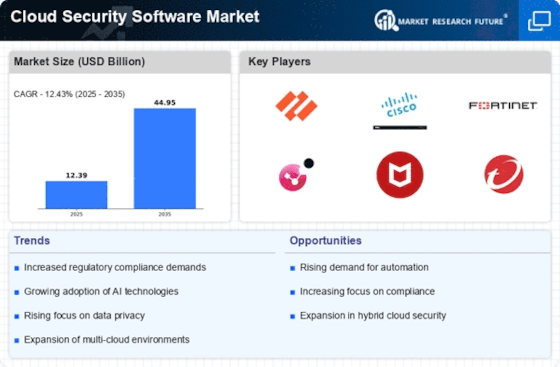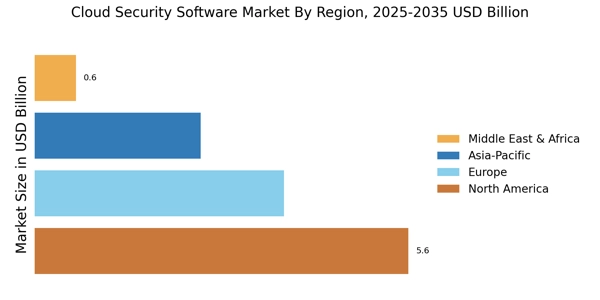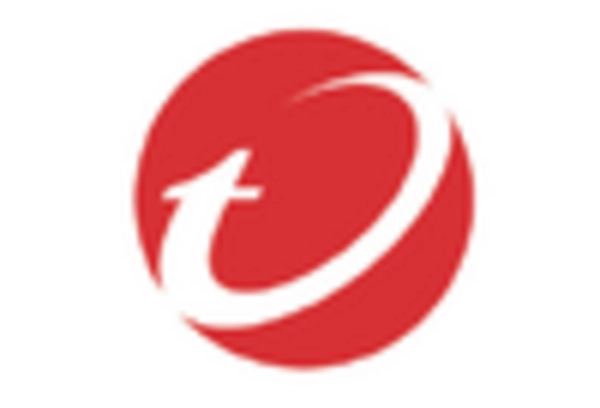Rising Cybersecurity Threats
The Cloud Security Software Market is experiencing a surge in demand due to the increasing frequency and sophistication of cyber threats. Organizations are facing a myriad of challenges, including ransomware attacks, data breaches, and phishing schemes. As a result, businesses are compelled to invest in robust cloud security solutions to safeguard sensitive information. According to recent data, the global cost of cybercrime is projected to reach trillions of dollars by 2025, underscoring the urgency for effective security measures. This trend indicates that companies are prioritizing cloud security software to mitigate risks and protect their digital assets, thereby driving growth in the Cloud Security Software Market.
Shift to Remote Work Environments
The Cloud Security Software Market is witnessing a transformation driven by the shift to remote work environments. As organizations embrace flexible work arrangements, the reliance on cloud-based applications and services has intensified. This transition has created new vulnerabilities, making it imperative for businesses to implement effective cloud security measures. Data indicates that the remote workforce is expected to remain a significant aspect of business operations, leading to an increased focus on securing cloud infrastructures. Consequently, the demand for cloud security software is likely to grow as companies seek to protect their remote operations and ensure data integrity in the Cloud Security Software Market.
Regulatory Compliance Requirements
The Cloud Security Software Market is significantly influenced by the stringent regulatory compliance requirements imposed on organizations across various sectors. Regulations such as GDPR, HIPAA, and PCI DSS mandate that businesses implement adequate security measures to protect customer data. Non-compliance can result in hefty fines and reputational damage, prompting organizations to adopt cloud security solutions that ensure adherence to these regulations. The increasing complexity of compliance frameworks necessitates the use of specialized software, which is expected to propel the Cloud Security Software Market forward. As companies strive to meet these legal obligations, the demand for comprehensive cloud security solutions continues to rise.
Increased Cloud Adoption by Enterprises
The Cloud Security Software Market is benefiting from the accelerated adoption of cloud technologies by enterprises. Organizations are increasingly migrating their operations to the cloud to enhance scalability, flexibility, and cost-efficiency. This trend has led to a heightened awareness of the need for robust security solutions to protect cloud environments. Market data suggests that the cloud services market is projected to grow significantly, with a substantial portion of this growth attributed to the demand for security software. As enterprises prioritize cloud security to safeguard their assets, the Cloud Security Software Market is poised for continued expansion.
Emergence of Advanced Security Technologies
The Cloud Security Software Market is evolving with the emergence of advanced security technologies such as artificial intelligence and machine learning. These technologies offer enhanced capabilities for threat detection, response, and prevention, making them invaluable in the fight against cyber threats. Organizations are increasingly integrating these advanced solutions into their cloud security strategies to bolster their defenses. The potential for AI-driven security tools to analyze vast amounts of data in real-time is likely to reshape the landscape of the Cloud Security Software Market. As businesses seek innovative ways to enhance their security posture, the adoption of these technologies is expected to drive market growth.

















